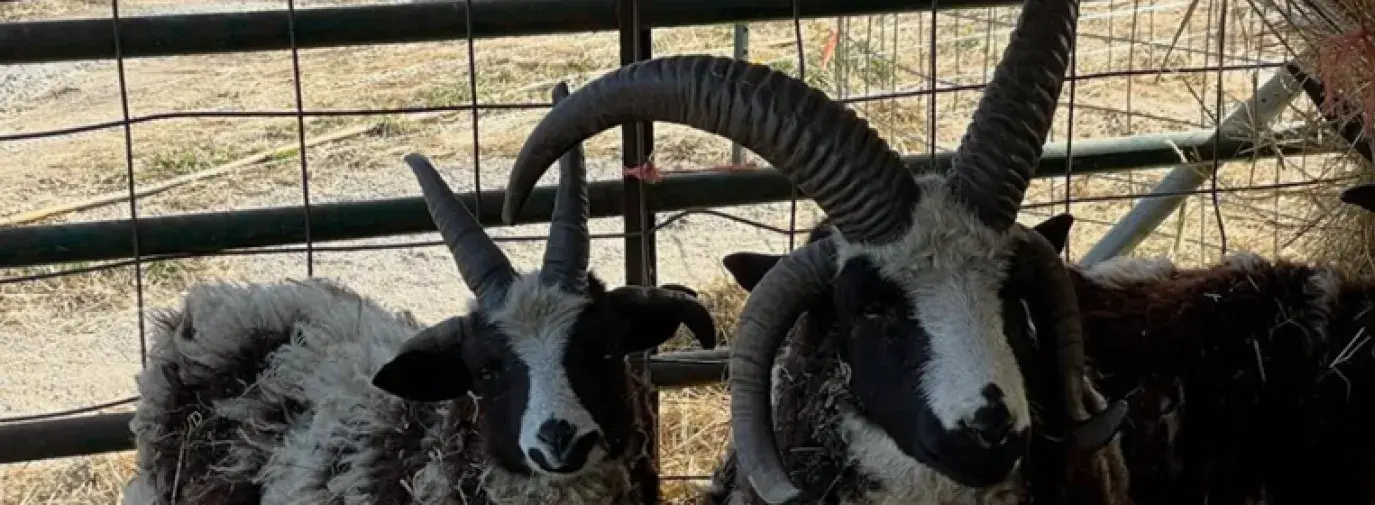
In the town of Ellettsville in southern Indiana, where suburbia fades into farmland, Lauren McCalister's farm stands as a testament to resilience and community. The black-owned farm, situated at a unique crossroads of American life – nestled in a right-leaning intersection between a McMansion, a 300-acre Land Trust of corn and soybeans, and a trailer park– tells a story of transformation and purpose.
"I got into farming because of poverty," Lauren shares candidly. But what began as a means of survival has blossomed into a family operation. The farm operates primarily as a family affair, with Lauren, her husband, and their children working the land together. Occasionally, they welcome eager learners who want to experience farm life firsthand.

The property's history runs as deep as its limestone foundation. The original farmhouse, thoughtfully positioned with its front door facing due north, was built by a cattle farmer who quarried the limestone himself. This attention to detail and connection to the land didn't go unnoticed when McCalister sought to purchase the property. The previous owner, daughter of the original farmer, had declined numerous offers over two years, paying taxes on an empty house while waiting for the right buyers. When she learned the McCalisters planned to continue farming the 40 acres, she finally agreed to sell.
"She drives by sometimes," Lauren says with a smile. "When we see her, she tells us how happy it makes her to see the sheep there and someone farming."


The farm began with just three sheep—a wedding present from a friend looking to “call [Lauren’s] bluff” on wanting to husband sheep; hence the name “Three Flock Farm”. Today, the name is still apt as they have three flocks of sheep, goats, and chickens, totaling about 100 animals. Through trial and error, Lauren learned what grows best on the farm; namely: blueberries, sweet potatoes, and mushrooms.
The farm's impact extends beyond its fences. They sell their meat to Mother Hubbard’s Cupboard (a food pantry and community hub for access to healthy foods) and the People's Cooperative Market, ensuring that quality, locally-raised meat and eggs remain accessible to those who might otherwise go without. But perhaps their most beloved community contribution is their annual tradition of bringing lambs to the public library for children to hold.
"There are very few things in my life that I'm like... adorable," Lauren admits, "but watching kids meet the lambs is one of them." The visits have become so popular that they now require breathing exercises before introducing the lambs, as children literally shake with excitement at the prospect of holding them. "There's always at least one kid that, after holding the lamb, declares 'I want to be a sheep farmer!'" Lauren recounts with pride.
The farm operates with minimal outside help and follows what would be considered as “regenerative organic practices”. Lauren explains that they knew they didn’t want to spray any synthetic chemicals. She then observed that the sheep happily ate and trampled down her fields of cover-crops, in which she then directly planted her crops, later learning that this technique is considered “crimping”. Lauren pointed out that what she does is farming. It’s what others are doing that is the issue (destroying the land and lessening the nutritious quality of our food), such as using harmful pesticides, mono-cropping, or rototilling.
The McCalister farm represents more than just a business or a means of survival. In a time where the distance between farm and table grows ever wider, their story reminds us of the power of personal connection to the land and the community it feeds.



